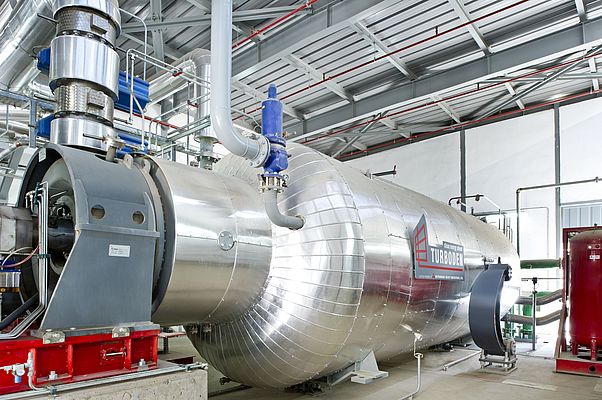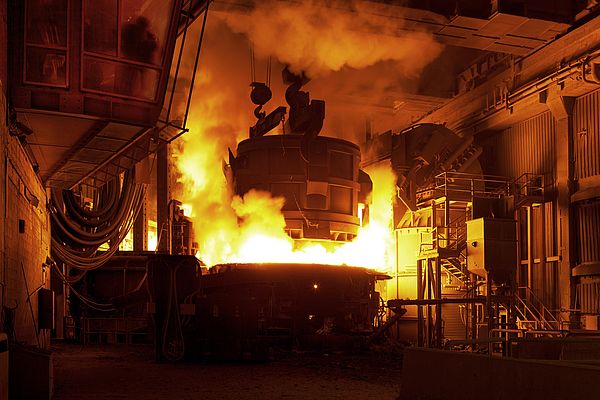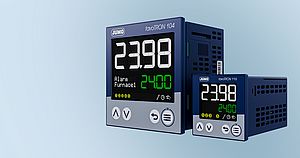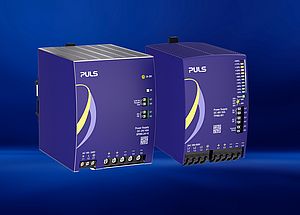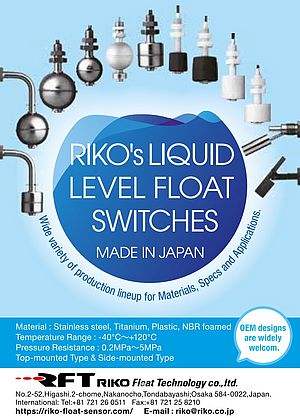Turboden, a leading company in the production of Organic Rankine Cycle (ORC) turbo-generators for distributed power generation employing renewable sources and waste heat, a group company of Mitsubishi Heavy Industries Ltd. (MHI), successfully implemented the first ORC-based heat recovery plant on an Electric Arc Furnace (EAF) in the world. The new 3 MW electrical output ORC unit exploits a portion of the saturated steam produced and recovers heat from the exhaust gases downstream an EAF at ESF (Elbe-Stahlwerke Feralpi GmbH), one of the Europe's most qualified iron and steel manufacturers, located in Riesa, Germany.
The heat recovery system was started up on December 18th 2013. It has been successfully working outperforming the guaranteed 2.9 MW power output, after a few months of commissioning and fine tuning needed for such innovative solution.
The heat recovery system is connected to the off-gas treatment system of the melting electric furnace. The recovered energy reduces the net power consumption, allowing significant CO2 reduction. In addition to electricity production, the remaining portion of the steam is fed into the Riesa Municipal steam supply system and used in a nearby tire factory production process.
This plant is part of the H-REII DEMO Project (Heat recovery in Energy Intensive Industries) and was co-financed by the DG Environment of the European Commission under the LIFE+ program, thanks to technological innovation and environmental benefits of the initiative. Partners of the project are Turboden, CO.ME.CA. - manufacturer of integrated systems for steelworks and FIRE - Italian Federation for Energy Efficiency. Last May, this innovative project was presented in a paper by Feralpi at AISTech 2014, in Indianapolis. Moreover, another 2 MWe ORC-based plant of the same type is under construction for an iron & steel factory in Italy.
The heat recovery system will also be connected to the local municipal district heating, supplying about 12 MW of thermal energy.
Turboden power generation plants for heat recovery
Turboden, a pioneer in ORC technology, designs, develops and implements generation plants, allowing reduction of industrial energy consumption and emissions containment through heat recovery from unexploited residual heat streams and exhaust gases in production processes and power plants. The ORC plants employ a totally enclosed organic fluid system, enabling the user-friendly exploitation of waste heat streams, with no emissions. This technology is best applied in energy-intensive industries such as glass, cement, aluminum, iron & steel, where production processes typically generate exhaust gases above 250°C.
These new plants represent an important technological innovation and are increasingly expanding their ability to benefit a variety of industries. Not only do they provide advantages in terms of environmental sustainability, emissions reduction, increased industrial process efficiency and improved business performance, but they also represent opportunities for increased competitiveness.
Since 2007, Turboden has designed and implemented 34 power plants for heat recovery in Germany, Belgium, Romania, Slovakia, Italy, Finland, Austria, Turkey, Morocco, Canada, United States and Singapore, with additional plants under construction in Germany, Italy, France, Turkey, Romania, Canada and Russia. The overall installed power output is around 40 MW electric of working plants in addition to 32 MW of plants under construction. These power plants have already achieved well over 400,000 operating hours, demonstrating an average availability exceeding 98%.
Turboden is committed to successfully deliver plants worldwide, always giving special attention from commissioning to aftersales service, to achieve the expected performance results throughout the life of the plant. ORC technology, flexible and reliable, can be efficiently applied to different industrial production processes, easy to match automatically with variable-load heat sources, even yielding significant economic returns. Turboden has delivered many plants to recover heat from steel, glass, cement industries and waste incinerators but also from exhaust gases of reciprocating engines and gas turbines, maintaining the reliability of the original system.
According to the Energy Efficiency Report 2012, a study conducted by the Politecnico di Milano on energy efficiency in industrial processes, the estimated potential of electricity produced through ORC-based heat recovery technology could financially benefit Europe with up to 8 billion Euros with about 2.5 GW saved power implying a CO2 reduction of almost 7.5 million tons.



